Chris Peters Guitar
About
If you have any questions, please contact me via my website. Lessons are once per week, $30 per half hour and $60 per hour, billed monthly; I do not offer (and can not accommodate) every other week, group, and/ or 45 minute lessons. Lessons are available online and in person. I offer an initial free trial lesson consultation with no obligation to register.
www.chrispetersguitar.com
Hi! I've been working with students of all ages, backgrounds, and levels of ability, since 1997. I have a diverse music background that includes studio guitar work for film, TV, radio, and albums, as well as live performance. This provides a unique perspective and skillset that is leveraged to serve the students. Let's work together to achieve your music dreams. I'm here to help. Let's discuss your goals.
Specialties
Instrument(s)
Experience level
Students age
Interest(s)
Lesson length
Photos and videos
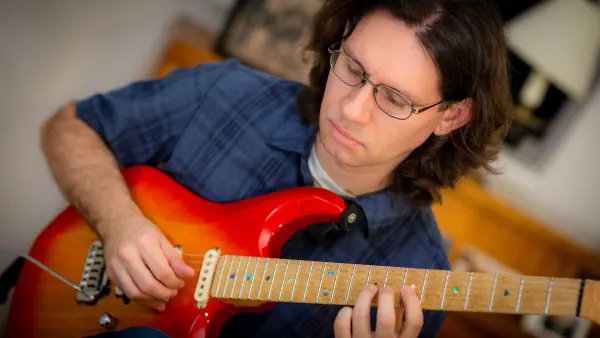
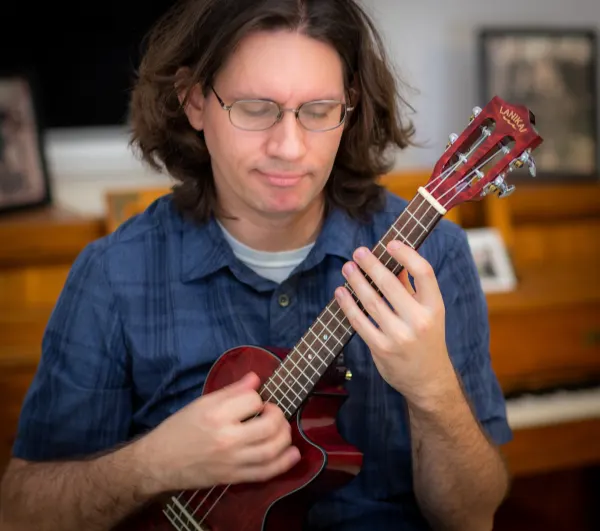
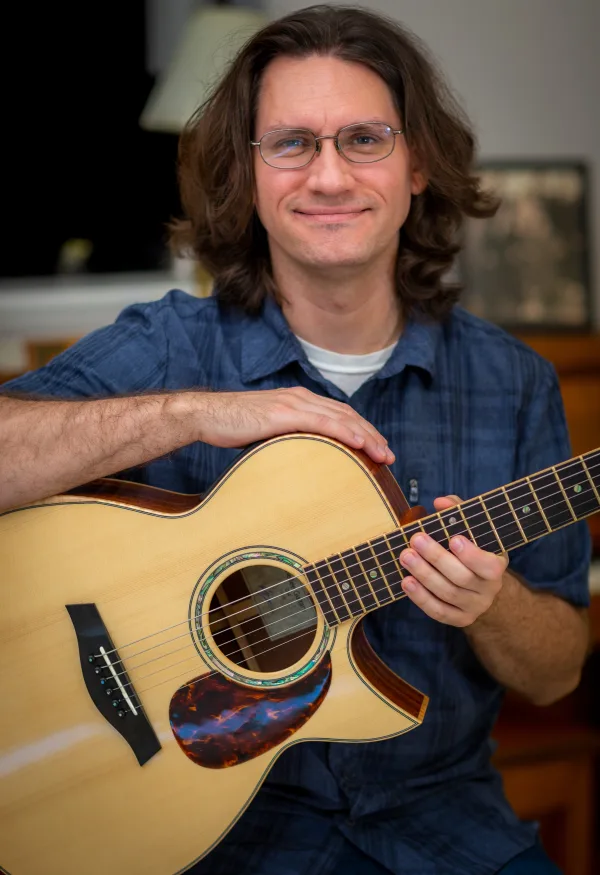
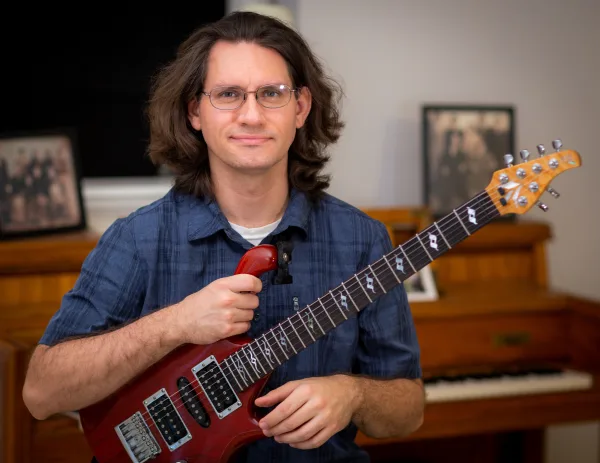
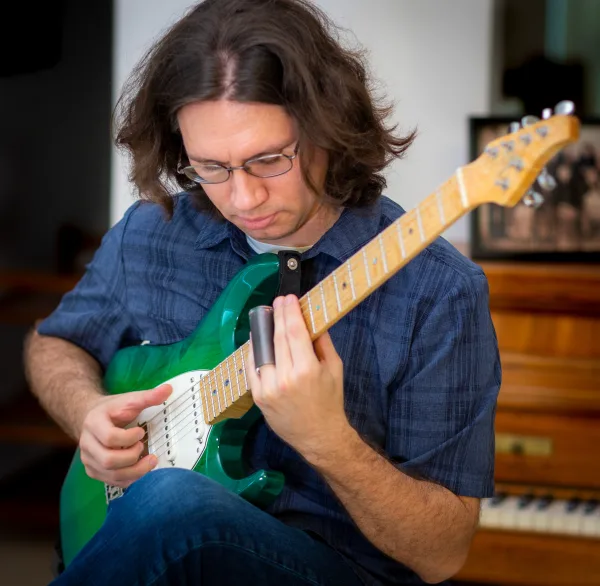

Reviews
victor G.
danny l. M.
John F.
Mark S.
Robert A.
Umasudhan
Frequently asked questions
What is your typical process for working with a new student?
I assess what stage of development you are at, and your personal goals. I develop a specific, unique plan to help you achieve your goals. If you have attempted guitar unsuccessfully in the past, I endeavour to discover what didn't work for you, and change that immediately .
What education and/or training do you have that relates to your work?
I studied classical/ jazz piano under Michael Kramer for 10 years, and guitar under David Hopwood for nearly 7 years, covering every conceivable guitar style and playing technique, as well as advanced theory concepts (improvisation, composition, reading). Additionally, I have over 20 years experience as a studio guitarist.
Do you have a standard pricing system for your lessons? If so, please share the details here.
Lessons are $30 per half hour, once a week. Hour lessons are $60. Lessons are billed monthly, on the first of the month. Lessons are conducted online unless you would like in person lessons.
How did you get started teaching?
I started teaching friends in high school, partly to make a little bit of money, but mostly so they would stop bugging me to teach them. Haha! I quickly realized that contrary to my supposition that teaching would be a chore, I actually enjoyed helping others to improve their playing.
What types of students have you worked with?
I've worked with students as young as 6 to as old as 70 plus. I've brought students from having zero guitar experience to developing into advanced players. On the other end of the spectrum, I've worked with advanced players to fix holes in their playing, explore other styles and techniques, and expand their music theory mastery. There's always something new to learn or improve, and I can help you.
Describe a recent event you are fond of.
I recently completed guitar and ukulele tracking for the soundtrack of a soon to be released documentary film titled: "Pre Fab!", about The Quarrymen and their drummer Colin Hanton. This is the band that became The Beatles. Studio work is one of my favorite musical creative outlets!
What advice would you give a student looking to hire a teacher in your area of expertise?
There are many solid guitar players who play guitar and teach for the money, but are not obsessed with virtuosity. A guitarist who has worked toward virtuosity will have specific reasons why they are instructing you in a particular way, whereas the standard guitar player will not. This can set you up for failure, or at least much more work.
For example, the manner in which the pick is held will dramatically impact whether or not you'll be able to pick fast, or weather you'll be forced to rebuild your picking technique years into your playing career. Please take lessons from a master guitarist, rather than someone who simply plays the guitar.
What questions should students think through before talking to teachers about their needs?
Think about what your goals are, what music/ artists you like, and what it is about music that you have a passion for.
Additionally, you need to discern whether or not you have the dedication for the instrument, and the patience to take instruction. An instructor's role isn't to bend to the whims of the student, but rather to do what is necessary to help the student to reach his or her goals as quickly as possible.